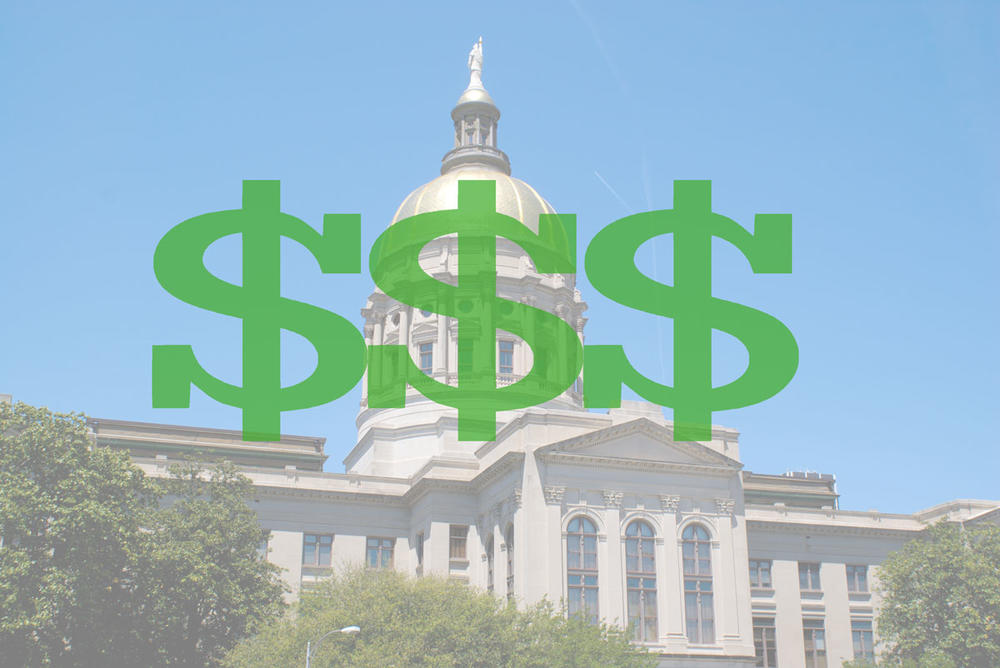Section Branding
Header Content
Economic Uncertainty Sets Stage For 2020 State Budget Showdown
Primary Content
Starting this week, state agencies have a little less money to get things done.
Gov. Brian Kemp ordered budget cuts last month, encouraging departments to cut redundant spending and warning of a potential future economic downturn.
But the lawmakers who craft the budget aren’t so sure. They met last week to hear more about the Georgia economy. All Things Considered host Rickey Bevington speaks with GPB political reporter Stephen Fowler about the state budget.
GPB political reporter Stephen Fowler sat down with All Things Considered host Rickey Bevington to sort out what this means for Georgia residents.
Rickey Bevington: The state passes a budget every year with cuts and increases. What is different this time?
Stephen Fowler: Here’s how the year-round budget cycle usually works: agencies submit their proposals for the next fiscal year in September. The governor puts together his plan by January, and then the legislature dukes it out during the session to deliver a version back to the governor.
What’s different this year is Kemp’s instructions he gave to agencies as they made their budget. They will automatically get 4% less money from now until July 1, 2020, and agencies had to propose cuts of 6% starting next July 1.
Bevington: And we should note that GPB is partially funded by the state of Georgia and had to submit budget cuts. What are the types of programs and services that could see cuts?
Fowler: A lot of state spending can’t be cut because it’s formula-based, like Medicaid and k-12 education.
I’ve looked at the agencies’ new proposals, and as it stands now the budget goes up because only a fraction of the state’s spending is actually eligible to be cut. Things like the judicial branch and the Georgia Department of Transportation proposed increases as well.
There are a lot of things that could be cut, like the Division of Family and Children Services case workers, incentive programs for rural doctors, lab technicians testing rape kits and the Secretary of State's elections office.
Bevington: Are all Republicans on board with the governor’s desire to cut spending?
Fowler: Not entirely. Some are worried this will cost jobs and hurt essential services, like state House Appropriations chairman Rep. Terry England (R-Auburn).
“The dollars we collect are those dollars that go to pay for schools, those dollars that go to pay for roads and bridges, those dollars that go to pay for state troopers and prison guards and all of those services that that are that are public that our constituents expect to be out there," he told me recently.
England has been appropriations chair since 2011, so he’s very familiar with how budget plans affect people’s lives.
He’s a little skeptical all these budget cuts will go through, especially where agencies want to cut jobs.
Bevington: From Kemp's perspective, it’s responsible to plan ahead in case of an economic slowdown. That’s what the House and Senate Appropriations committees heard last week from several experts, including the state’s new economist Jeffrey Dorfman.
"If revenue collected fall short of predictions, then budget cuts become necessary, which often carry with them considerable disruption to both state agencies and to taxpayers who rely on the affected government services,” he said.
What kind of worst-case scenario is the state trying to prepare for?
Fowler: Well, lowering your spending preemptively can soften the blow if there is a downturn in the near future. Revenues from income tax and other sources pay the bills for state government.
If revenues go down, there’s not enough to pay for those roads and bridges and other services state government provides.
The legislature could also pass a tax cut next year that would further lower the amount of revenue the state could spend by about half a billion dollars.
Bevington: How can a state pass a tax cut and budget cuts at the same time?
Fowler: With both, Georgians will potentially see a few extra dollars in your paycheck each month ... but deep cuts to essential government services.
Georgia historically has run a tight ship, fiscally speaking. The budget has not grown at the same rate the state's population has, and Georgia has not added much spending since the recession.
One thing to keep an eye on is the new revenue estimate coming out later this year - that will influence all tax cut and budget discussions next year.



